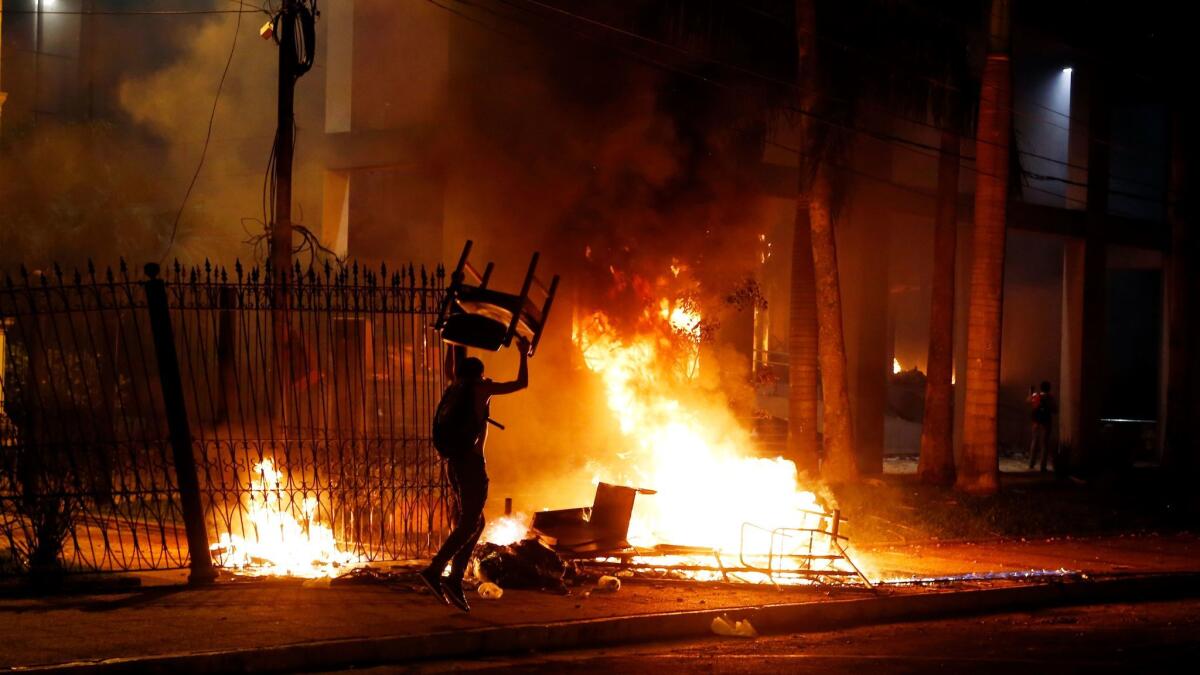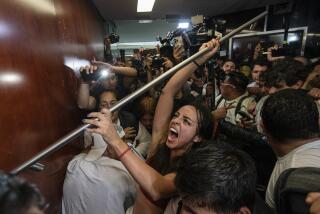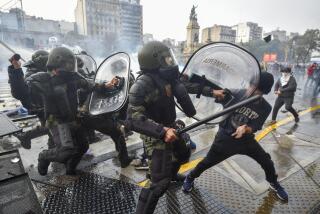Clashes erupt after Paraguay’s Senate approves presidential reelection

- Share via
Reporting from Asuncion, Paraguay — A majority of Paraguayan senators approved a proposed constitutional amendment Friday that would allow the election of a president to a second term, a move called illegal by opposition members and opposed by the Senate president himself.
The vote was followed by clashes outside the Congress building between police and protesters opposing the amendment. Some protesters broke through police lines and entered the first floor, where they set fire to papers and furniture. Police used a water cannon and fired rubber bullets to drive demonstrators away from the building while firefighters extinguished blazes inside.
The measure was backed by 25 of the country’s 45 senators. The “yes” votes came from members of the governing Colorado Party and from several opposition groups.
Opponents of the move included Senate President Roberto Acevedo of the opposition Authentic Radical Liberal Party. He argued the process used to bring the amendment to a vote violated Senate rules, and he filed an appeal to the Supreme Court seeking to have the vote overturned.
The proposal would allow current President Horacio Cartes and Paraguay’s previous presidents to run for the top job again in the 2018 election. Presidents are now limited to a single five-year term.
After approval in the Senate, the proposal went to the Chamber of Deputies, where 44 of the 80 members belong to the Colorado Party. Approval there would require the scheduling of a national referendum on the amendment.
ALSO
Tillerson tells NATO allies to spend more on defense, bolster anti-terrorism efforts
More to Read
Sign up for Essential California
The most important California stories and recommendations in your inbox every morning.
You may occasionally receive promotional content from the Los Angeles Times.













